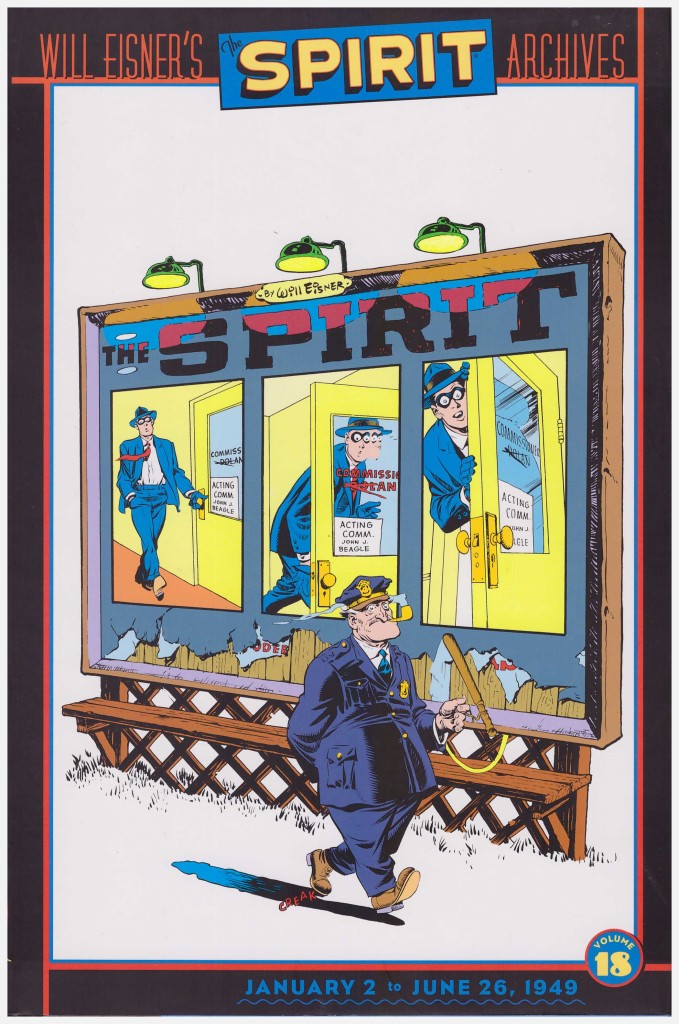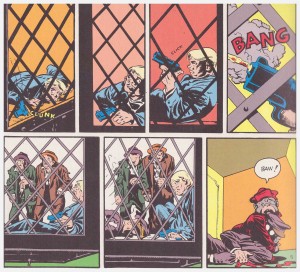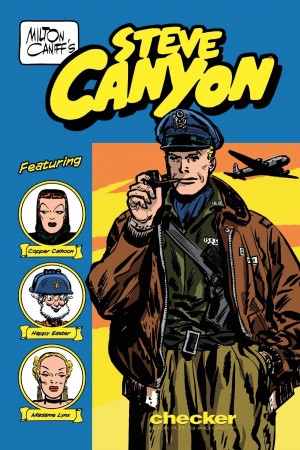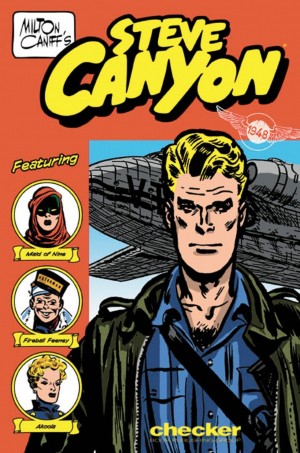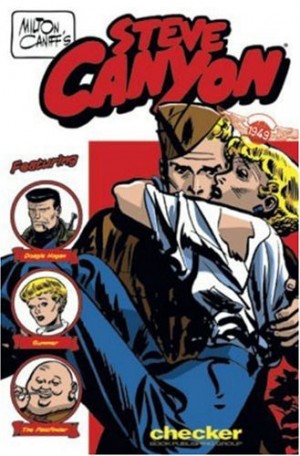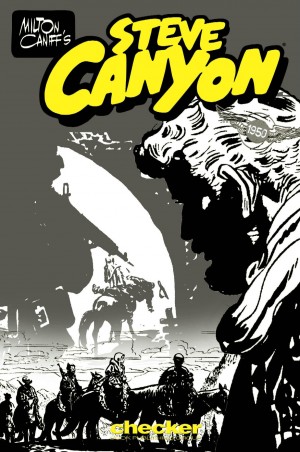Review by Frank Plowright
So, another archive volume reprinting material from the late 1940s, and it’s another superb selection of mini crime-based dramas. These stories were originally printed for newspaper circulation between January and June 1949, and see increasing plot contributions from Jules Feiffer. He was already writing and drawing the one page Clifford strip that formed part of the Spirit newspaper section, when he began providing the dialogue for Denny Colt’s adventures. The passage of time has muddied the waters, so while many 1949 strips are generally credited as collaborations with Will Eisner, in interviews Feiffer has claimed he rapidly progressed to writing entire strips on his own with Eisner just approving the plots. We’ll not know from the credits, which emphasise Esiner alone. Feiffer is churlishly relegated to a list in miniscule type of around thirty others who contributed to the strip at some stage.
The initial material here is all Eisner, and he begins with the Spirit stumbling into declaring his love for Ellen Dolan. In the manner typical of the movie screwball comedies of the era, his problem then becomes how to renege on what was a commitment. It taxes him over the following few episodes until the plot is dropped when the collaborations with Feiffer begin. For all the disagreement over precise credit, there’s actually little discernible difference. At the time the opinionated younger Feiffer may have felt Eisner was coasting on the material, but he was wrong.
Eisner seemingly never forgot a character, and bizarre elements of continuity play a part. In the previous volume the authority dog catcher ended up as mayor of Central City, and he returns in a tale that provides this book’s cover. Corrupt elements frown on Dolan’s relationship with the Spirit, a vigilante after all, and he’s demoted to a patrolman while the Spirit is arrested. The sequence that follows legitimises the Spirit’s status as a legally-approved deputy. Also back, from space no less, is Artemus Peap who led a criminal gang three years previously (as seen in volume 13). The luckless Silk Satin also returns.
Artistically, the most impressive splash pages opens ‘Black Alley’, a scene from above looking way down onto the railway tracks and the tenements as a single man walks through a dangerous area, as ever, illuminated and casting a long shadow. The noir-drenched tale of a man intending to kill the Spirit opens within a dark apartment and tracks across the city.
The whimsical side of the Spirit is well represented with stories featuring a visitor from Mars, a dead man whose tax return is due, a weatherman whose reputation is at stake when he predicts snow in mid-June, and a neat story of four randomly delivered valentine cards.
This volume sees the last of Ebony White as a lead character, as he’s phased out during 1949. Not much is seen of him in volume 19 when his replacement is introduced early. Ebony takes centre stage cast as both a private eye, and a doctor in a soap opera pastiche, and his final appearance in the spotlight closes the book. The well-plotted ‘Elevator’ has him trapped with crooks in a stalled elevator, convinced one of them is the Spirit in disguise. Ebony becomes more divisive as the years pass, but that’s partially testament to the enduring strength of the stories in which he stars. Little 1940s material warrants archiving in this fashion, and as The Spirit increasingly comes to represent the era, so it attracts disproportionate criticism for elements common in the day, but unacceptable now.
